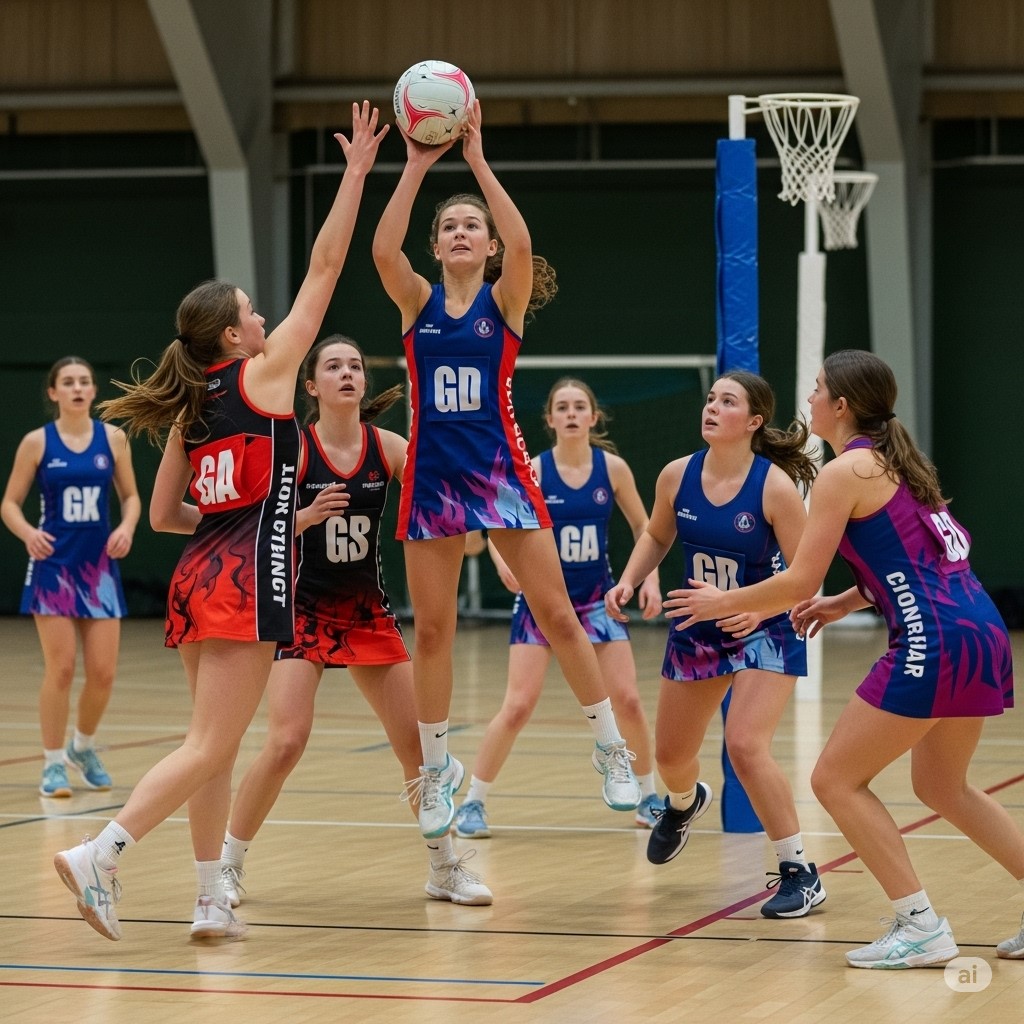
The Comprehensive Guide to Netball: History, Global Reach, and Its Impact
Netball is a dynamic and exciting sport that has captivated millions of players and fans worldwide. Originating in the late 19th century, it has evolved into a global phenomenon. Played in over 80 countries, the sport’s popularity continues to grow, especially in schools, amateur leagues, and professional competitions. This article will explore the origins of netball, its global appeal, how it is played at different levels, and its political and social significance. Additionally, the rules of the game will be outlined to provide a deeper understanding of this remarkable sport.
The Origin and History of Netball
The roots of netball can be traced back to 1891 in Springfield, Massachusetts. Dr. James Naismith had just invented basketball, and the sport quickly gained traction. In 1895, Clara Gregory Baer, a physical education teacher in New Orleans, adapted the game for women, creating the foundation for what would become netball.
Netball’s development diverged significantly from basketball. In 1897, the first codified rules were established in England. These rules restricted movement on the court and prohibited dribbling, creating a distinct playing style. The game spread rapidly within the British Empire, reaching countries like Australia, New Zealand, South Africa, and the Caribbean.
By the 1920s, netball had firmly established itself as a sport played by women and girls. It became particularly popular in schools, offering a structured and team-oriented activity. The formation of the International Federation of Netball Associations (IFNA) in 1960 marked a significant milestone. This organization standardized the rules and facilitated international competitions, including the Netball World Cup, first held in 1963.
The Global Popularity of Netball
Netball’s global appeal is undeniable. The sport enjoys immense popularity in countries such as Australia, New Zealand, England, and Jamaica. Australia and New Zealand dominate the international scene, with their national teams often competing for the top spot in global tournaments.
In Africa, countries like South Africa, Malawi, and Uganda have embraced the sport. These nations have produced highly skilled players who have made their mark on the international stage. Similarly, in the Caribbean, Jamaica’s “Sunshine Girls” have achieved remarkable success, showcasing their athleticism and passion for the game.
Netball’s reach extends beyond these traditional powerhouses. In Asia, countries like Singapore, Malaysia, and Sri Lanka are developing strong netball programs. Meanwhile, in Europe, nations such as Scotland, Wales, and Northern Ireland have established competitive teams. The sport’s inclusion in multi-sport events like the Commonwealth Games has further boosted its visibility and appeal.
Amateur Netball: Youth and Schools
Amateur netball plays a critical role in nurturing talent and promoting inclusivity. Schools worldwide have incorporated the sport into their physical education curricula, recognizing its benefits for teamwork, coordination, and fitness. In countries like England and Australia, inter-school netball competitions are highly competitive and well-organized.
Youth leagues provide additional opportunities for aspiring players to develop their skills. Clubs and community organizations often host tournaments and training sessions, creating a pipeline for future stars. Grassroots initiatives, such as NetSetGO in Australia, introduce young children to the basics of the game, fostering a lifelong love for the sport.
Netball’s accessibility is another factor in its widespread appeal. The game requires minimal equipment—a ball, a hoop, and a flat surface—making it easy to set up and play. This simplicity has enabled the sport to thrive in diverse environments, from urban neighborhoods to rural villages.
Professional Leagues and International Competitions
The rise of professional netball leagues has elevated the sport to new heights. The Suncorp Super Netball league in Australia is widely regarded as the premier competition, attracting the best players from around the world. Matches are broadcast live, drawing large audiences and generating significant revenue.
In New Zealand, the ANZ Premiership showcases the country’s top talent. Similarly, England’s Netball Superleague has grown in stature, featuring international stars and providing a platform for local players to shine. The Vitality Netball Superleague’s televised matches have increased the sport’s visibility in the UK.
The Caribbean also boasts a strong professional presence, with Jamaica’s Elite League providing opportunities for regional players. Meanwhile, South Africa’s Telkom Netball League has become a vital part of the country’s sports landscape.
International competitions, such as the Netball World Cup and the Commonwealth Games, are the pinnacle of the sport. These events bring together the best teams, fostering intense rivalries and showcasing incredible athleticism. The Quad Series and Fast5 Netball World Series offer additional opportunities for international competition, featuring unique formats that add excitement and variety.
The Political and Social Significance of Netball
Netball has profound political and social implications. In many countries, the sport has empowered women and girls by providing a platform for leadership, teamwork, and self-expression. The emphasis on female participation has challenged traditional gender roles and promoted equality.
In South Africa, netball played a symbolic role in the post-apartheid era. The sport’s unifying nature brought communities together, fostering reconciliation and social cohesion. Similarly, in the Caribbean, netball has become a source of national pride, with successful teams inspiring future generations.
Netball also contributes to health and well-being. Community leagues encourage physical activity, combatting sedentary lifestyles and promoting mental health. The sport’s inclusive nature ensures that people of all ages and abilities can participate, fostering a sense of belonging and camaraderie.
The Rules of Netball
Netball is a fast-paced game played by two teams of seven players. The objective is to score more goals than the opposing team by shooting the ball through the opponent’s hoop.
Basic Rules:
- Court and Positions: The court is divided into thirds, with specific areas designated for different player positions. Each player has a defined role, such as Goal Shooter or Wing Attack, and must stay within their assigned zones.
- Starting Play: The game begins with a center pass, taken from the center circle. Teams alternate center passes after each goal.
- Passing and Movement: Players must pass the ball within three seconds of receiving it. They cannot move while holding the ball, emphasizing quick decision-making and teamwork.
- Shooting: Only the Goal Shooter and Goal Attack can score, and they must shoot from within the goal circle.
- Defending: Players must maintain a distance of at least three feet from the ball handler. Contact or obstruction results in penalties.
Match Duration:
A standard netball match consists of four quarters, each lasting 15 minutes. Teams switch ends after each quarter, ensuring fairness in playing conditions.
Conclusion
Netball is a sport rich in history, cultural significance, and global appeal. From its origins as an adaptation of basketball to its status as a professional and international phenomenon, the game has touched countless lives. Its popularity in schools and communities highlights its role in fostering inclusivity and personal development. Professional leagues and international tournaments continue to inspire fans and elevate the sport.
As netball evolves, its impact on society remains profound. By promoting equality, health, and unity, it has become more than just a game—it is a symbol of empowerment and connection. Whether played in a schoolyard or on a world stage, netball continues to bring people together, proving that teamwork and passion can overcome any boundary.





